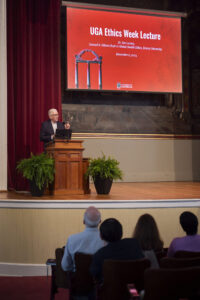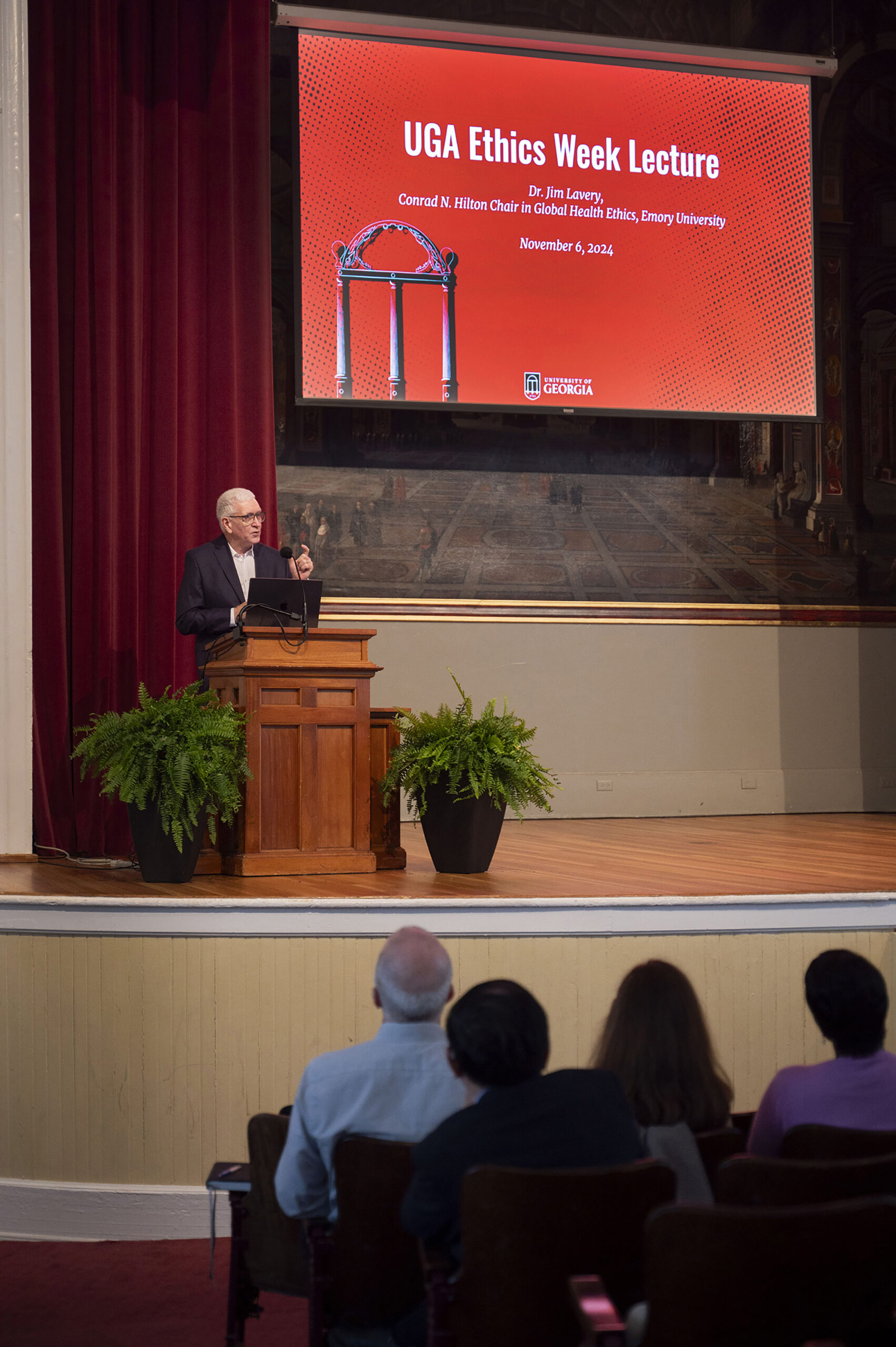Global health presents a variety of complex ethical challenges, but those challenges can be met by fostering stakeholder engagement and organizational learning.
“Ethics really comes alive in the details and in the context,” said Jim Lavery, Conrad N. Hilton Chair in Global Health Ethics at Emory University.

Lavery shared his experiences managing ethical concerns in global health during the 2024 Ethics Week Lecture, held Nov. 6 in the Chapel.
Bioethics is Lavery’s area of study. He spent 10 years as co-principal investigator of the Ethical, Social and Cultural (ESC) Program for the Bill and Melinda Gates Foundation’s Global Health and Global Development programs. Now, he is leading the development of the Human Engagement Learning Platform (HELP) for Global Health at Emory University.
Two main goals of Lavery’s work are providing an advisory service for social and cultural issues researchers encounter and generating knowledge for best practices. To accomplish these goals, he works with fellow researchers and scientists in the field, getting a variety of perspectives.
Lavery shared an example of a question that came from a researcher: is it ever ethical to stop an entire platform of clinical trials early if they are not producing useful results? Lavery and his team took that question and published an article about using opportunity costs as a reason to stop early, in addition to traditional considerations.
Another lesson Lavery shared is that viable solutions to ethical concerns are custom-made. It can be challenging to develop the right model, and engagement from stakeholders is crucial.
In fact, stakeholder engagement is a main focus for HELP for Global Health. Some other current directions include vaccine equity, including considerations when distributing them, and fair partnerships.
“It reaches back to some of these deeper ethical concerns of understanding and acknowledging the interests of stakeholders and how you build those insights into organizational learning opportunities,” Lavery said.
The Ethics Week Lecture was sponsored by the Office of the Senior Vice President for Academic Affairs and Provost and the Global Health Institute in the College of Public Health.
It is part of the university’s observance of Ethics Awareness Week, an event designed to highlight the institution’s ongoing effort to promote an ethical culture on campus and to raise awareness about ethics resources available at UGA. The annual observance is designated by the University System of Georgia across all USG institutions as an important reminder of shared core values of integrity, excellence, accountability and respect.


